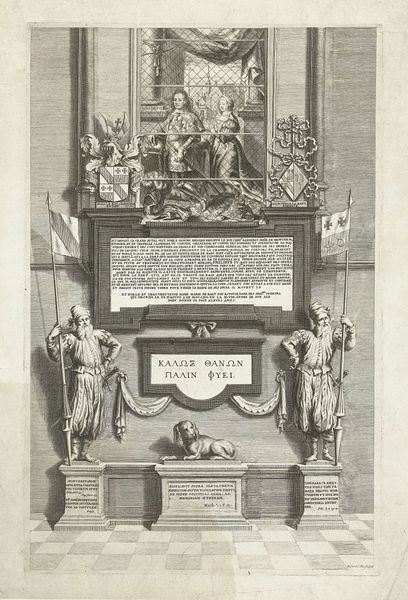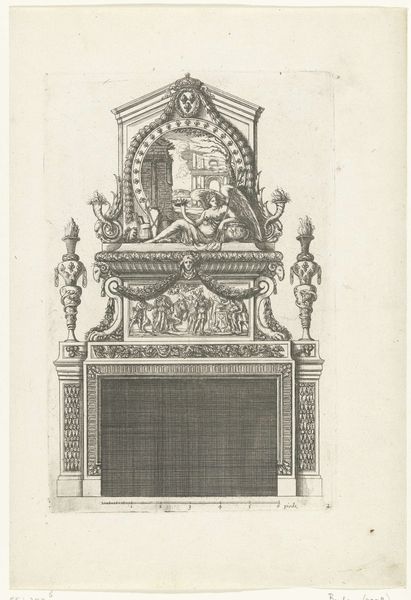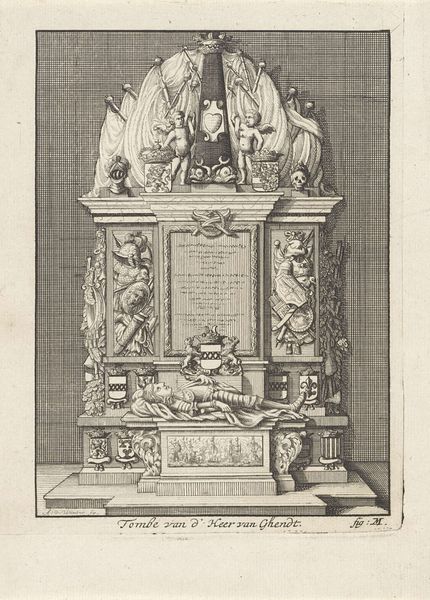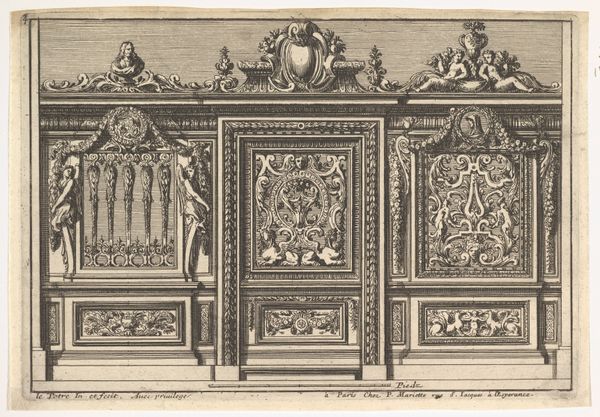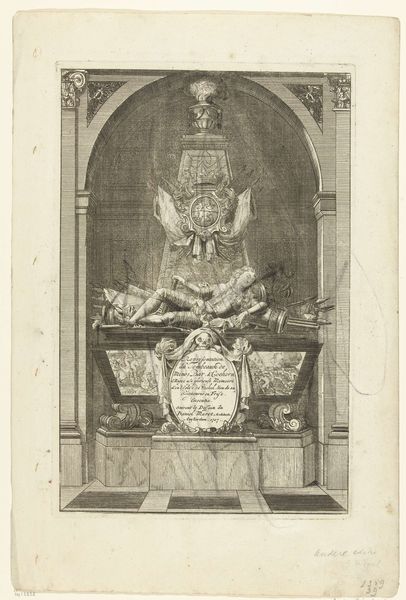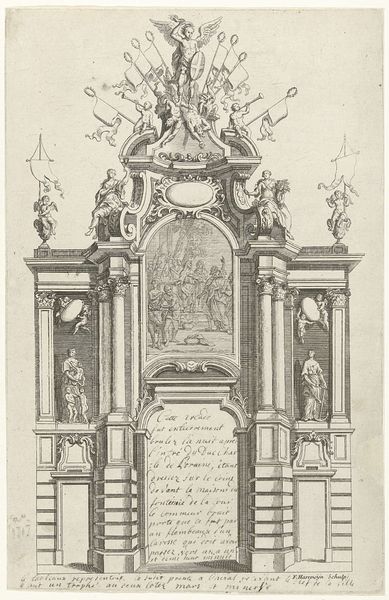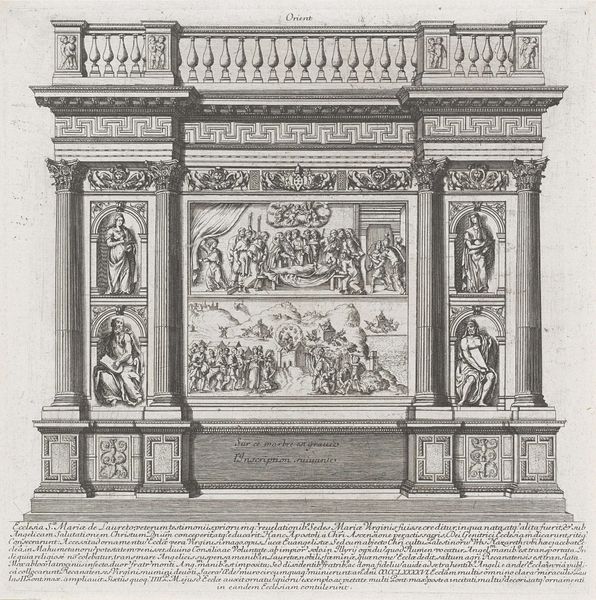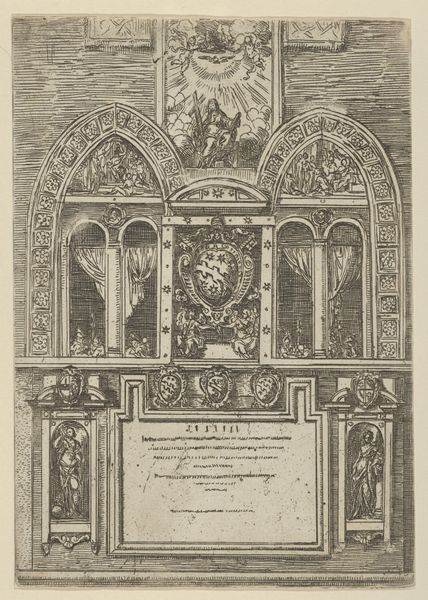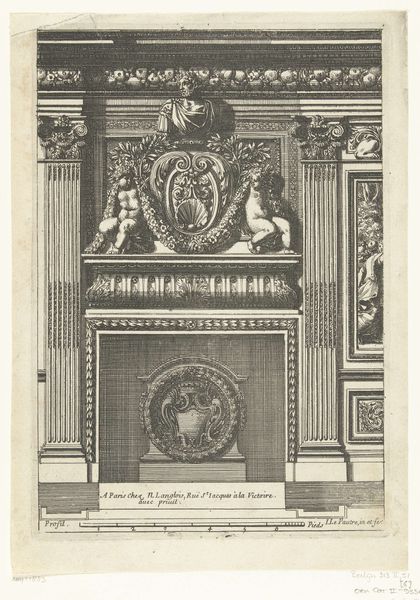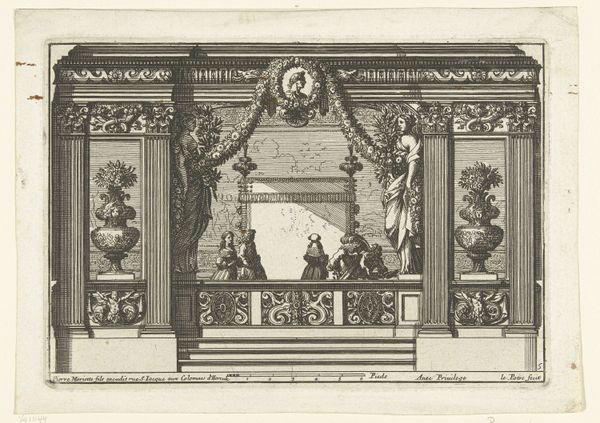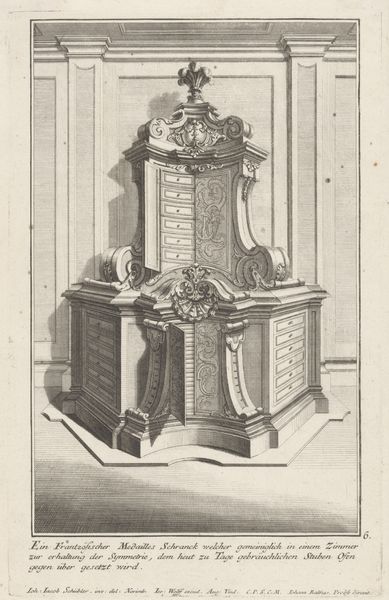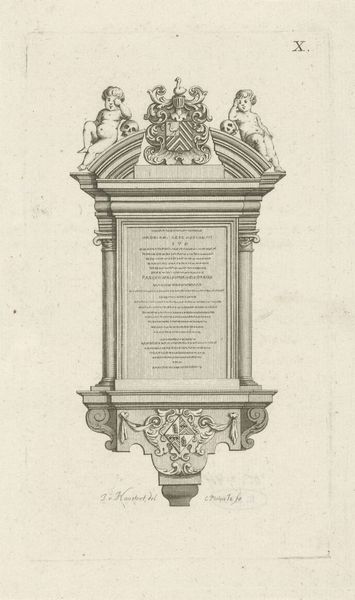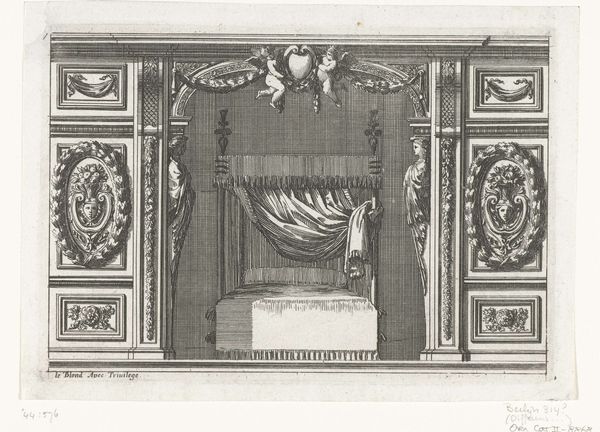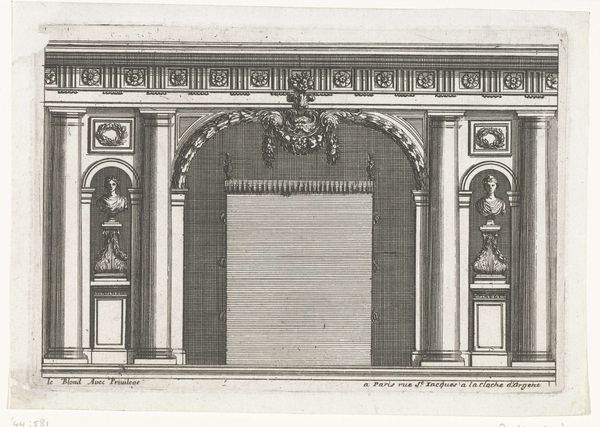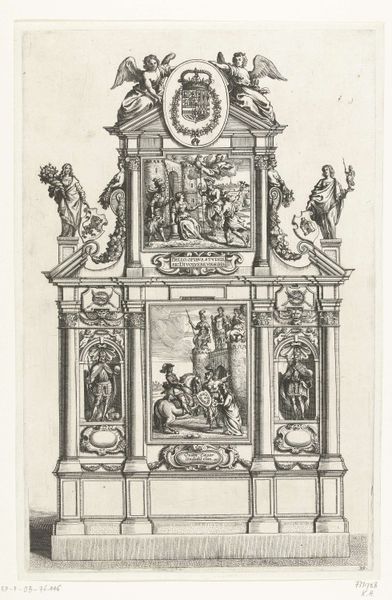
Tabel met de watergetijden van de Maas en het Goereese Gat 1736 - 1775
0:00
0:00
graphic-art, print, engraving
#
graphic-art
#
baroque
#
dutch-golden-age
# print
#
landscape
#
cityscape
#
engraving
Dimensions: height 254 mm, width 320 mm
Copyright: Rijks Museum: Open Domain
This engraving by Jan Caspar Philips from the 1700s presents a table of water tides for the Maas river and Goeree Gat in the Netherlands. It offers a fascinating glimpse into the intersection of Dutch maritime culture, scientific inquiry, and civic life. Note how the image creates meaning through visual codes, cultural references, and historical associations. The detailed tables are framed by allegorical figures and architectural elements, suggesting the importance of this information for trade, navigation, and defense. This wasn't just a practical tool; it was a symbol of Dutch ingenuity and control over their environment. The depiction of Neptune, Roman God of the sea, shows how mythology was appropriated to give authority to human endeavors. Looking at this image, the historian might ask: Who commissioned it? How was it used? What does it tell us about the relationship between the state, science, and the maritime economy in the Dutch Golden Age? Such questions demand archival research, the study of contemporary texts, and an understanding of the scientific and political context in which this print was produced.
Comments
No comments
Be the first to comment and join the conversation on the ultimate creative platform.
